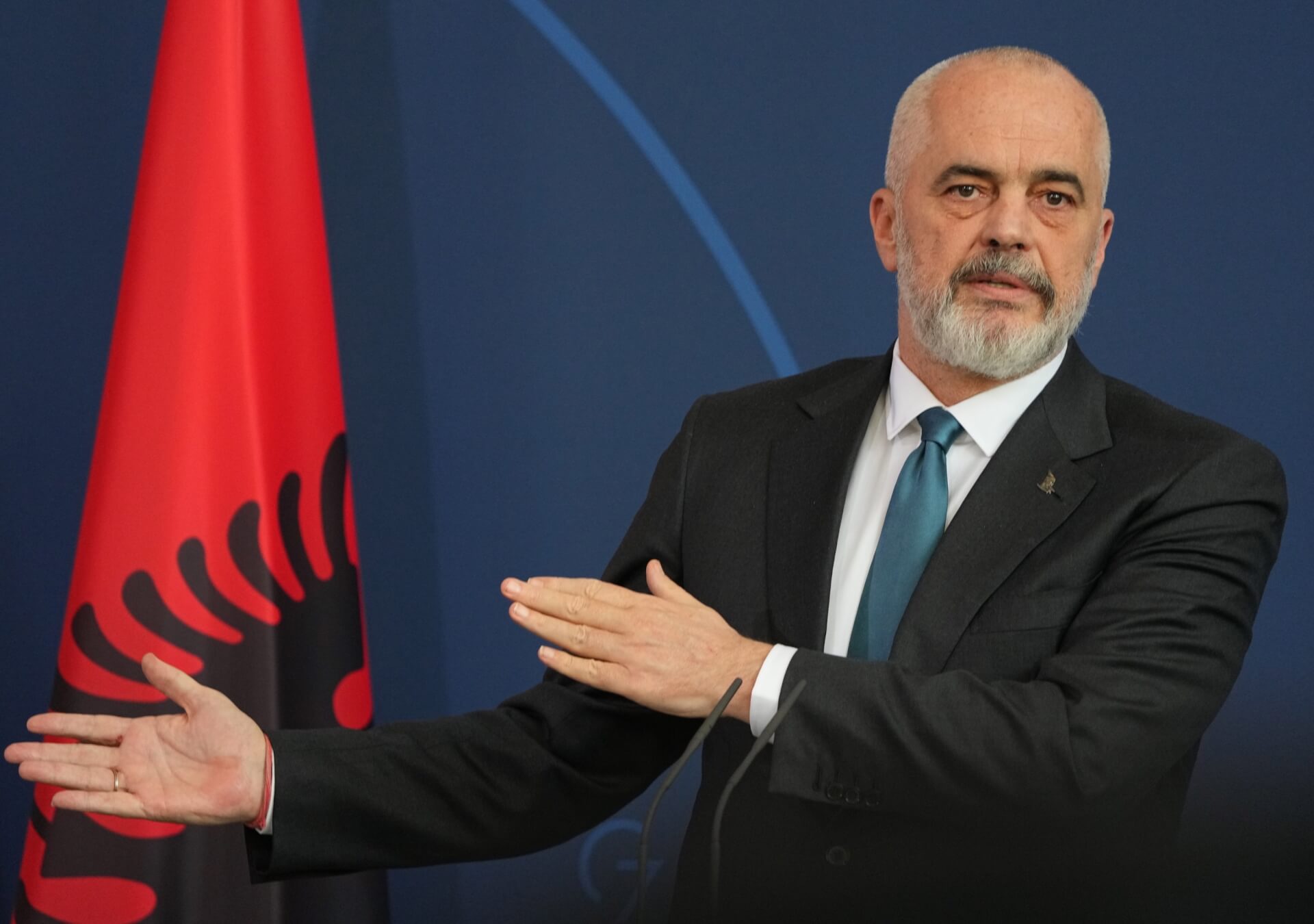Albania on Wednesday severed all diplomatic ties with Iran over a cyberattack in July. Prime Minister Edi Rama asked all Iranian diplomats and embassy staff to leave the country within 24 hours.
Rama said Iran was responsible for a “heavy cyberattack” on Albania’s digital infrastructure in a bid to “destroy” and “paralyse” the country’s public services and hack data from government systems. He noted, however, that the attack had “failed its purpose” and caused only “minimal damage.”
#BREAKING: #Albania’s prime minister announces the severing of diplomatic relations with #Iran after a cyberattack. This happened around the time of the MEK conference, which had to be cancelled as well due to a terror threat. pic.twitter.com/NXdioQjW4p
— Jason Brodsky (@JasonMBrodsky) September 7, 2022
The PM said that an “in-depth investigation” by Albanian and international cybersecurity agencies provided “indisputable evidence that the cyberattack against our country was orchestrated and sponsored by the Islamic Republic of Iran.” He added that the attack was carried out by four Iranian “cyber terrorist” groups, one of which had previously carried out cyberattacks against Israel, Saudi Arabia, the United Arab Emirates, Jordan, Kuwait, and Cyprus.
As a result, Albania “has decided on the severance of diplomatic relations with the Islamic Republic of Iran with immediate effect” and asked all its diplomatic, technical, administrative, and security staff in the country to leave within 24 hours. “This extreme response, one that is unwanted but totally forced on us, is fully proportionate to the gravity and risk of the cyberattack” that threatened to “stir chaos and insecurity.”
The United States strongly condemns Iran’s cyberattack against our NATO Ally, Albania. We join in Prime Minister Rama’s call for Iran to be held accountable for this unprecedented cyber incident. Read more: https://t.co/ZEMzo5nS7i
— National Security Council (@WHNSC) September 7, 2022
Rama also said Albani has shared the investigation results with its strategic allies, including North Atlantic Treaty Organization (NATO) members.
The United States (US) issued a statement condemning the cyberattack, with National Security Council Spokesperson Adrienne Watson saying it “set a troubling precedent for cyberspace.” She “vowed to hold Iran accountable for actions that threaten the security of a US ally.”
We strongly condemn the malicious cyberattack against Albania's critical infrastructure.
— Vjosa Osmani (@VjosaOsmaniPRKS) September 7, 2022
We stand with President @BajramBegajAL and the Albanian government & call on Iran to be held accountable for this unprecedented action.
🇽🇰🇦🇱
“Iran’s conduct disregards norms of responsible peacetime state behaviour in cyberspace, which includes a norm on refraining from damaging critical infrastructure that provides services to the public,” Watson remarked.
The United Kingdom’s National Cyber Security Centre (NCSC) also concluded that Iran state-linked actors were behind the cyberattack. “These cyber attacks are the latest in an increasingly reckless pattern of behaviour by Iran. Iranian-linked cyber actors have a number of powerful disruptive and destructive tools at their disposal,” the NCSC said.
We condemn Iran’s reckless cyber-attack against #Albania. We stand with our NATO allies and partners.
— Alastair King-Smith (@AlastairKS) September 7, 2022
The #UK will continue to work with the Albanian Government to support the interests of the Albanian people. https://t.co/6mx2aBvjD3
“Iran’s reckless actions showed a blatant disregard for the Albanian people, severely restricting their ability to access essential public services,” British Foreign Secretary James Cleverly remarked. He announced that the UK would “join Albania and other allies in exposing Iran’s unacceptable actions.”
However, Iran has rejected the claims made by Albania and called the decision to expel Iranian diplomats a “miscalculated and short-sighted measure.” Foreign Ministry spokesman Nasser Kanaani said the “baseless” accusations only justify political adventurism against Iran. He warned that Iran is “completely ready to deal with any possible conspiracy decisively and immediately.”
The Albania incident and the more recent incident in Montenegro, unrelated though they are, are reminders that critical systems in NATO countries are still vulnerable.
— John Hultquist🌻 (@JohnHultquist) September 7, 2022
He added that Iran has been “repeatedly attacked by cyberattacks” and called on the international community to deal with the cyber threat against Iran.
The cyberattack occurred on July 15 after Albanian authorities allowed the Iranian opposition group Mujaheddin-e-Khalq (MEK) to conduct an event in Tirana. Authorities cancelled the programme after MEK organisers received multiple threats from unidentified sources. The MEK is a political-military organisation that claims to fight for a “free and democratic” Iran by overthrowing the Islamic regime.
Iran and Albania have had tense relations since 2014, when Tirana provided refuge to over 3,000 MEK members. Albania has previously accused Iran of launching cyberattacks targeting MEK events. It also expelled four Iranian diplomats in two separate incidents in 2018 and 2020 for threatening national security.

